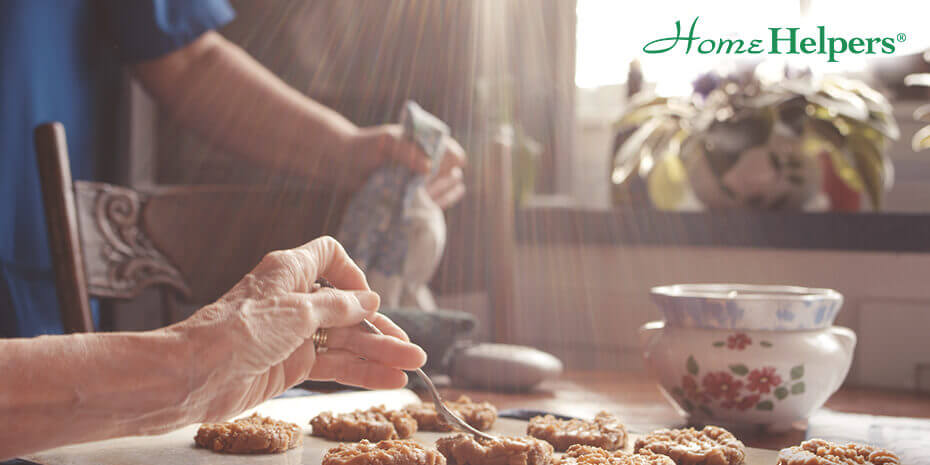Home care plays a crucial role in supporting veterans and enhancing their quality of life. Here are some ways in which home care benefits veterans:
- Home-Based Primary Care (HBPC): This program delivers routine health care services directly to veterans’ homes. It is especially helpful for veterans with medical conditions that make travel challenging. HBPC includes services such as primary care, nursing, medication management, nutritious meal planning, physical rehabilitation, mental health care, and referrals to VA and community services. By bringing care to the veteran’s doorstep, it reduces the stress of frequent visits to VA medical centers.
- Adult Day Health Care Centers (ADHC): ADHC centers provide a safe and active environment for veterans. These centers allow veterans to socialize with peers while caregivers get some respite. ADHC staff assess rehabilitation needs and help veterans maintain or regain independence. These centers operate during regular business hours, emphasizing collaboration between caregivers, veterans, and staff.
- Home Hospice Care: During the advanced stages of a terminal illness, home hospice care provides comfort and support. An interdisciplinary team of health care providers and volunteers offers services 24/7. Grief counseling is also available for family members. Home hospice care allows veterans to spend their final days in familiar surroundings.
- Homemaker and Home Health Aides: These professionals assist veterans with daily living tasks, enabling them to remain at home. While not nurses, they work under the supervision of registered nurses. Their services include personal care, companionship, and respite care for family caregivers.
- Financial Support: Veterans may receive financial assistance to offset in-home care costs. Programs like the Aid and Attendance benefit or the Housebound Status allowance partially address these expenses for veterans with severe illnesses, disabilities, or vision loss5.
Remember that home care not only supports veterans but also provides relief to their dedicated caregivers. It allows veterans to maintain their independence and dignity while receiving necessary care in a familiar environment.
In-home 24-hour care provides invaluable support to veterans with various disabilities, enhancing their well-being and overall quality of life. Here are some ways in which this personalized care positively impacts veterans:
- Continuous Assistance: Veterans with disabilities often require round-the-clock assistance for daily activities such as bathing, dressing, medication management, and mobility. In-home care ensures that a trained caregiver is always available to provide hands-on support, promoting independence and dignity.
- Tailored Care Plans: Each veteran’s needs are unique. In-home care allows for customized care plans that address specific disabilities. Whether it’s managing chronic conditions, coping with physical limitations, or dealing with cognitive impairments, caregivers adapt their approach to meet individual requirements.
- Comfort of Familiar Surroundings: Being in their own home offers veterans a sense of comfort and familiarity. It reduces stress and anxiety associated with unfamiliar environments, especially for those with conditions like PTSD or traumatic brain injuries.
- Medication Management: Veterans often have complex medication regimens. In-home caregivers ensure timely administration of medications, monitor side effects, and communicate with healthcare providers. This helps prevent complications and hospitalizations.
- Mobility Assistance: For veterans with mobility challenges, caregivers assist with transfers, mobility aids (such as wheelchairs or walkers), and exercises. Regular movement helps maintain muscle strength and prevents complications like pressure sores.
- Emotional Support: Isolation can be a significant issue for veterans with disabilities. In-home caregivers provide companionship, engage in conversations, and offer emotional support. This social interaction contributes to mental well-being.
- Nutrition and Meal Preparation: Proper nutrition is crucial for veterans’ health. Caregivers plan and prepare nutritious meals, considering dietary restrictions and preferences. Adequate nutrition supports overall wellness and healing.
- Wound Care and Rehabilitation: Veterans recovering from surgeries or managing chronic wounds benefit from in-home care. Caregivers assist with wound care, physical therapy exercises, and rehabilitation routines.
- Respite for Family Caregivers: Many veterans have family members serving as primary caregivers. In-home care provides much-needed respite for family members, allowing them to rest, recharge, and maintain their own well-being.
- Safety and Fall Prevention: Caregivers create a safe home environment by addressing fall risks. They assist veterans during transfers, install safety equipment, and educate both veterans and family members on fall prevention strategies.
- Coordination with Healthcare Providers: In-home caregivers collaborate with medical professionals, ensuring seamless communication about the veteran’s health status, changes in medications, and any emerging concerns.
- Promoting Independence: Despite disabilities, veterans value their independence. In-home care focuses on empowering veterans to perform tasks they can manage, fostering a sense of achievement.
Beyond Care, a Touch of Comfort and Hope:
Imagine your loved one: a smile lighting up their face as they chat with a friendly caregiver, sharing old stories and laughter. Or picture the calming touch of a caregiver, offering support and understanding during a difficult day. At Home Helpers Home Care of Austin, we believe emotional and spiritual support are not luxuries, but essential threads woven into the fabric of well-being.
Our caregivers aren't just providers of tasks, they're companions who connect on a deeper level. They listen with open hearts, fostering a sense of security and belonging. Whether it's playing a favorite song, reminiscing about cherished memories, or simply offering a warm hand to hold, they cultivate joy and hope, healing not just the body, but the spirit.
Your Journey, Supported with Compassion:
We understand that caregiving is a journey, and you don't have to walk it alone. Whether you're in Austin, Lakeway, Georgetown, Cedar Park, Leander, or Round Rock, our compassionate team is here for you every step of the way. We offer personalized care plans tailored to your loved one's unique needs, respecting their individuality and cultural background.
Contact us today at (512)883-2365 . Let us answer your questions, address your concerns, and explore how we can make a world of difference in your life or the life of your loved one. Together, we can navigate this journey with grace, finding moments of comfort, hope, and a renewed sense of well-being.

